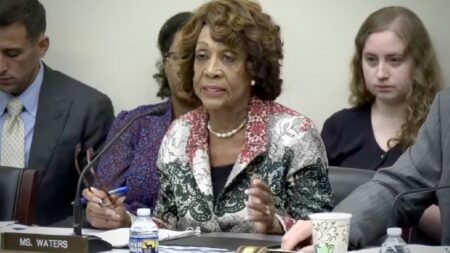After passing in the US House of Representatives Wednesday evening with widespread bipartisan support, the Financial Innovation and Technology for the 21st Century Act, known as the FIT21 Act, is headed to the Senate.
FIT21 advanced Wednesday with the support of 71 House Democrats, including Reps. Nancy Pelosi, D-Cali., and Josh Gottheimer, D-N.J. Representatives passed the bill with two amendments proposed by Reps. Brittany Pettersen, D-Col., and Ralph Norman, R-S.C., respectively.
Norman’s amendment requires the Treasury Department, the CFTC and the Securities and Exchange Commission to complete a joint study and submit a report to Congress that identifies any digital asset businesses that are owned by “governments of foreign adversaries,” Norman said Wednesday on the House Floor.
Pettersen’s amendment expands the Bank Secrecy Act to include digital asset entities under the definition of a “financial institution” and orders a study to assess risks posed by centralized intermediaries in areas where anti-money laundering enforcement is not as “robust,” she said Wednesday.
After joint resolution 109 — the measure which, should President Joe Biden refrain from exercising his right to veto, invalidates the SEC’s staff accounting bulletin (SAB) 121 — passed the Senate with unexpected bipartisan support earlier this month, fans of FIT21 are hopeful.
“I’m optimistic — yesterday’s vote in the House sent a clear message that there’s a strong bipartisan coalition supporting a regulatory structure for crypto,” Rep. Wiley Nickel, D-N.C., told Blockworks. “I’m engaged with my colleagues in the Senate who have the same priorities to protect consumers, cement the US as a global leader in finance and tech, and promote an innovative, inclusive financial future for all.”
Read more from our opinion section: It’s time to overturn SAB 121
Senators will now have the opportunity to consider the legislation as it currently stands and propose amendments. Industry advocates say the current version of the bill is probably not going to make it to the president’s desk.
“We expect the Senate to continue working on and amending FIT21, and our focus will remain on ensuring that there are protections and legal certainty for developers and users of decentralized networks and protocols,” Miller Whitehouse-Levine, CEO of the DeFi Education Fund, said. “We look forward to working with the Senate on these core issues.”
Even with 71 Democrats getting on board with FIT21 in the House, those opposed are expected to lobby in the Senate just as hard. Rep. Maxine Waters, who has dubbed FIT21 the “Not Fit for Purpose Act,” said Wednesday that the legislation serves to deregulate the crypto industry.
“The SEC is the federal agency on the front lines of enforcing our existing securities laws on crypto firms that have willfully chosen to ignore the law and [which have] defrauded customers out of billions of dollars with ‘get rich quick’ schemes,” Waters said in a statement ahead of Wednesday’s vote. “Giving this industry a free pass to avoid most or all regulations cannot be the answer to the serious concerns that Members have raised about crypto fraud.”
FIT21 advocates will also have to take on SEC Chair Gary Gensler, who said Wednesday that the bill “would create new regulatory gaps and undermine decades of precedent regarding the oversight of investment contracts, putting investors and capital markets at immeasurable risk.”
The Senate has not yet scheduled a floor vote for FIT21.
Read the full article here









